 Petzlover
Petzlover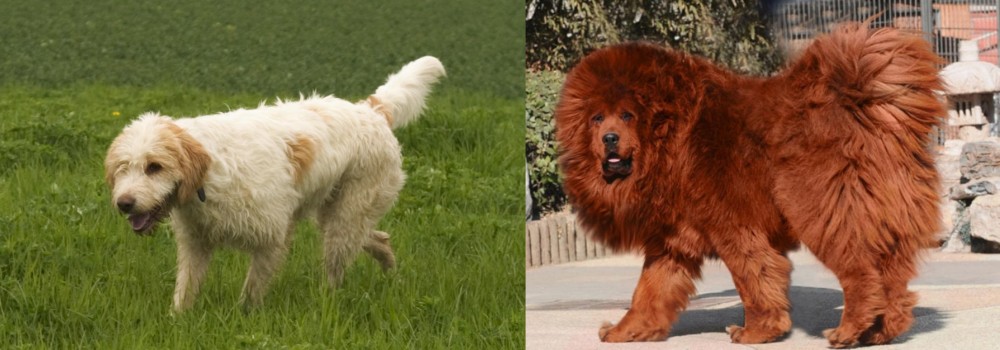 Briquet Griffon Vendeen is originated from France but Himalayan Mastiff is originated from India. Briquet Griffon Vendeen may grow 16 cm / 6 inches shorter than Himalayan Mastiff. Briquet Griffon Vendeen may weigh 54 kg / 119 pounds lesser than Himalayan Mastiff. Both Briquet Griffon Vendeen and Himalayan Mastiff has almost same life span. Briquet Griffon Vendeen may have less litter size than Himalayan Mastiff. Briquet Griffon Vendeen requires High Maintenance. But Himalayan Mastiff requires Moderate Maintenance
Briquet Griffon Vendeen is originated from France but Himalayan Mastiff is originated from India. Briquet Griffon Vendeen may grow 16 cm / 6 inches shorter than Himalayan Mastiff. Briquet Griffon Vendeen may weigh 54 kg / 119 pounds lesser than Himalayan Mastiff. Both Briquet Griffon Vendeen and Himalayan Mastiff has almost same life span. Briquet Griffon Vendeen may have less litter size than Himalayan Mastiff. Briquet Griffon Vendeen requires High Maintenance. But Himalayan Mastiff requires Moderate Maintenance
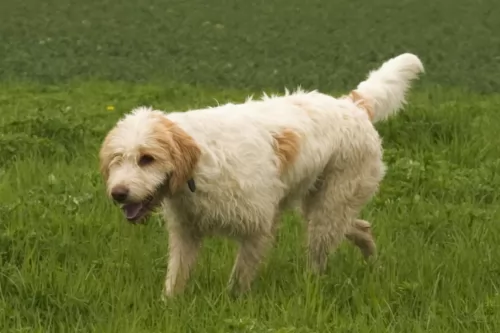 The Briquet Griffon Vendeen, a product of France is a hunting down bred down from the Grand Griffon Vendeen. The two dogs are descendants of the Gaul’s Canis sequsius and the Gris de St. Louis hounds. They are one of four dogs with rough coats from the Vendeen area along France’s west coast. Many of these lines were decimated by the Second World War and are still not found in France today.
The Briquet Griffon Vendeen, a product of France is a hunting down bred down from the Grand Griffon Vendeen. The two dogs are descendants of the Gaul’s Canis sequsius and the Gris de St. Louis hounds. They are one of four dogs with rough coats from the Vendeen area along France’s west coast. Many of these lines were decimated by the Second World War and are still not found in France today.
The Briquet Griffon Vendeen survived the war due to a French dog show judge named Hubert Dezamy, who restored the breed and it is mainly a show dog today. Many of Frances royalty prior to the French Revolution favored the breed as show dogs as well. The Briquet was originally developed for hunting of smaller game and is a scent hound. The larger Grand Griffon Vendeen was used in the hunt for large game, namely wolves and boar.
The Briquet Griffon Vendeen is recognized by the UKC and the FCI but not by the AKC and the breed is hardly known outside of France
 The Himalayan Mastiff or Tibetan Mastiff is an ancient breed. Bred to be guardians of the flock, they could take care of leopards and wolves or anything else that tied to hurt the flock. The Himalaya Mastiff is found in the Himalayan area of Tibet. They are descendants of the Tibetan dogs that developed almost any Mastiff or Molosser on earth. They may have been in the mountains since the early 1100 BC. and have been fairly isolated. It was in this isolation that the Himalayan Mastiff developed.
The Himalayan Mastiff or Tibetan Mastiff is an ancient breed. Bred to be guardians of the flock, they could take care of leopards and wolves or anything else that tied to hurt the flock. The Himalaya Mastiff is found in the Himalayan area of Tibet. They are descendants of the Tibetan dogs that developed almost any Mastiff or Molosser on earth. They may have been in the mountains since the early 1100 BC. and have been fairly isolated. It was in this isolation that the Himalayan Mastiff developed.
Their function at that time was mostly to guard property. In some circumstances an entire village is guarded by one dog. It was also during this period that the breed was taught to be aggressive by tying them up as puppies. They guarded families while the men moved the village flock higher up in the mountains. They stayed in isolation until the mid-1800’s when the Queen of England was given a Himalayan Mastiff. For thousands of years, this dog was a nomad.
Soon the breed was being exported to England. A standard was developed, and the British began to breed them. Next, they were exported to Nepal, Afghanistan, India and the United States. They are rare in Tibet these days but more popular than ever in England and the United States. The first American Himalaya Tibetan Mastiff Association came into being in 1974 and in 2006 it was recognized by the AKC.
Today in the West, the Himalayan is a domesticated, family dog. It hardly fits in an apartment of course. These new western Himalayan Mastiffs are more easy- going than the Tibetan ones, but they are still wary of strangers and somewhat aloof. They are also still very protective and nocturnal. They are smart, independent and stubborn. They are not easy to train but socialization and obedience training is essential.
A study done in 2011 showed that it is very likely that many large breed dogs were descended from this Mastiff. This includes the St. Bernard, the Rottweiler, Bernese Mountain Dog and the Great Pyrenees. Later studies showed that the Mastiff’s ability to survive in the rare air of the Himalayans was due to interbreeding with Tibetan wolves in ancient, prehistoric times. Now they are competing in the Westminster Kennel Club Dog Show.
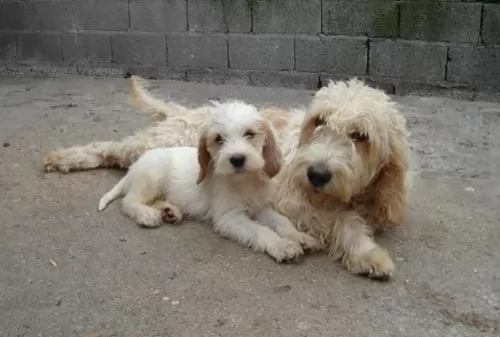 This medium sized dog is stocky and well proportioned. He looks very much like the Grand Griffon Vendeen only smaller. It is less muscular than other hound dogs and it holds its tail up when working. The head is short with a medium/long muzzle. It has low set ears and a flat skull with large, dark eyes and pronounced eyebrows. It also has a mustache.
This medium sized dog is stocky and well proportioned. He looks very much like the Grand Griffon Vendeen only smaller. It is less muscular than other hound dogs and it holds its tail up when working. The head is short with a medium/long muzzle. It has low set ears and a flat skull with large, dark eyes and pronounced eyebrows. It also has a mustache.
 The Himalayan Mastiff is a giant, massive dog longer than it is tall. The breed has a heavy, broad head and square muzzle. They have black noses, a level bite and almond shaped, slanted, deep set eyes. They are brown, and the ears hang close to the head. They are heavy, muscular and sturdy. They have a feathered tail curving over their back. With a heavy, thick double coat and mane they resemble a lion at times. The coat can be brown, black, and gray-blue with gold or tan markings. These are impressive and noble dogs, athletic, with cat like feet. They are agile and light on their feet.
The Himalayan Mastiff is a giant, massive dog longer than it is tall. The breed has a heavy, broad head and square muzzle. They have black noses, a level bite and almond shaped, slanted, deep set eyes. They are brown, and the ears hang close to the head. They are heavy, muscular and sturdy. They have a feathered tail curving over their back. With a heavy, thick double coat and mane they resemble a lion at times. The coat can be brown, black, and gray-blue with gold or tan markings. These are impressive and noble dogs, athletic, with cat like feet. They are agile and light on their feet.
According to some breeders there are two different kinds or types of Himalayan Mastiff. These are the Tsang-khyi or the monastery mastiff type and the Do-khyi or the nomad mastiff type. The monastery is a heavier, taller dog who face is very wrinkled while the nomad is a leaner dog with less facial wrinkles. In any litter there can be both kinds. The kind of work that was given to each dog was dependent on their type. The Monastery kind is given stationary jobs and the nomad kind got the active jobs.
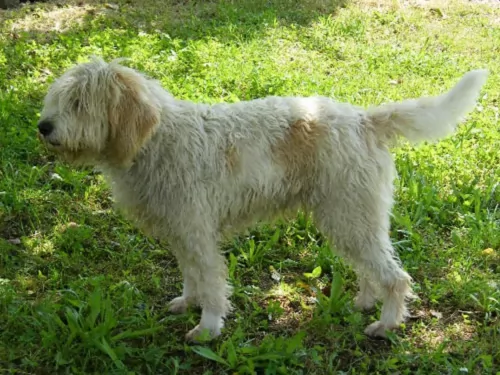 The Briquet Griffon Vendeen is a smart, attentive and sensitive dog. It is easy to train. They are loyal and bond quickly with their owner/trainer. These are enthusiastic dogs with a lot of stamina and get along with dogs and children. They don’t like to be told what to do. They respond well if you bribe them with treats or play with them. They are patient, extroverted and happy dogs.
The Briquet Griffon Vendeen is a smart, attentive and sensitive dog. It is easy to train. They are loyal and bond quickly with their owner/trainer. These are enthusiastic dogs with a lot of stamina and get along with dogs and children. They don’t like to be told what to do. They respond well if you bribe them with treats or play with them. They are patient, extroverted and happy dogs.
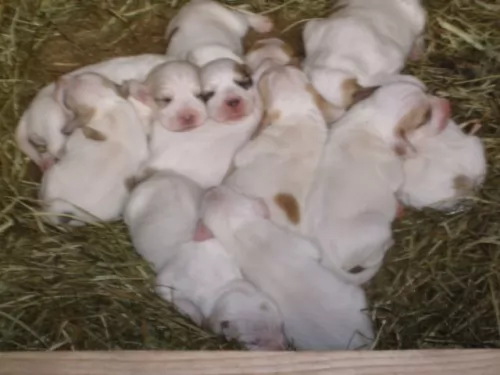 They are bred to be healthy and hardy, but still have some health concerns. These include:
They are bred to be healthy and hardy, but still have some health concerns. These include:
This is a frightening disease if you find your dog has it. It is characterized by a high fever and an intense hypersensitivity to touch. Aseptic Meningitis is an inflammation of the brain. It is caused by an infection and the most common ones include:
 Being a large breed of canine, the Himalayan Mastiff has some of the typical health issues of large dogs. However, they also face a serious genetic disorder as well.
Being a large breed of canine, the Himalayan Mastiff has some of the typical health issues of large dogs. However, they also face a serious genetic disorder as well.
Canine Inherited Demyelinative Neuropathy (CIDN) – a fatal disorder seen in puppies by seven weeks of age. Puppies die before they are 5 months old.
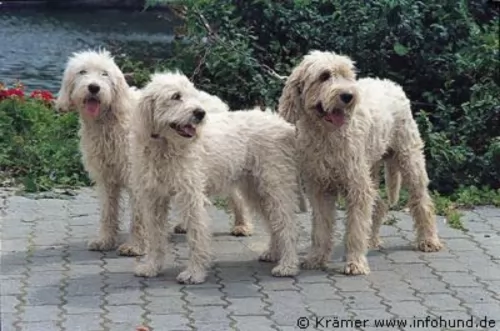 Don’t overfeed your Briquet Griffon Vendeen. Give her at least 2 meals of high quality dry food – two and one half to three cups daily.
Don’t overfeed your Briquet Griffon Vendeen. Give her at least 2 meals of high quality dry food – two and one half to three cups daily.
Every type of Griffon is a strong hunter and has strong instincts. The Briquet is no different. They need to be able to hunt as this is one of the strongest of scent hounds. They need a fenced in yard at the very least to explore and smell. They also enjoy long walks with new smells. Stay in shape because your Briquet Griffon Vendeen has stamina to share.
They love to play in leu of hunting. The games they love include frisbee, retrieving balls, and learning new tricks. They need mental stimulation as well as physical.
 This breed will eat less than you think they should but don’t overfeed. Puppies need a solid dry food for large dogs. You can free feed 1 cup three times per day.
This breed will eat less than you think they should but don’t overfeed. Puppies need a solid dry food for large dogs. You can free feed 1 cup three times per day.
For dogs over a year old you can free feed anywhere from two to four cups of dry food per day. Unlike many other breeds, the Himalaya Mastiff will only eat when hungry and they may not eat more than once a day. They will not overeat. The males might not eat at all when females are in season if they are around them.
They have good strength and athletic ability.
The Himalayan Mastiff needs regular, routine walks. It is important during these walks that the human leads the way, or the dog heals. Do not overwork a young Himalayan Mastiff. They need work related jobs like structured play time, walking the boundary of their territory, playing frisbee or catch. They work and play in short bursts then rest.